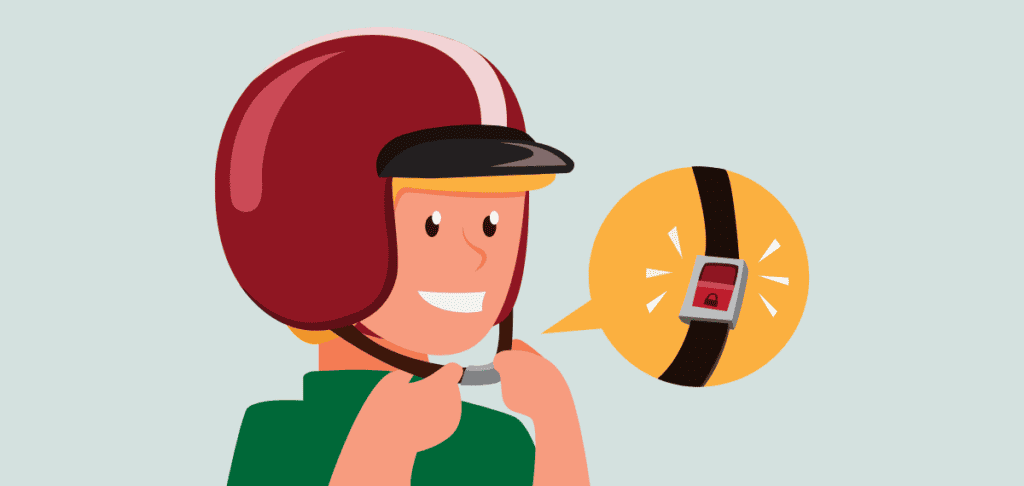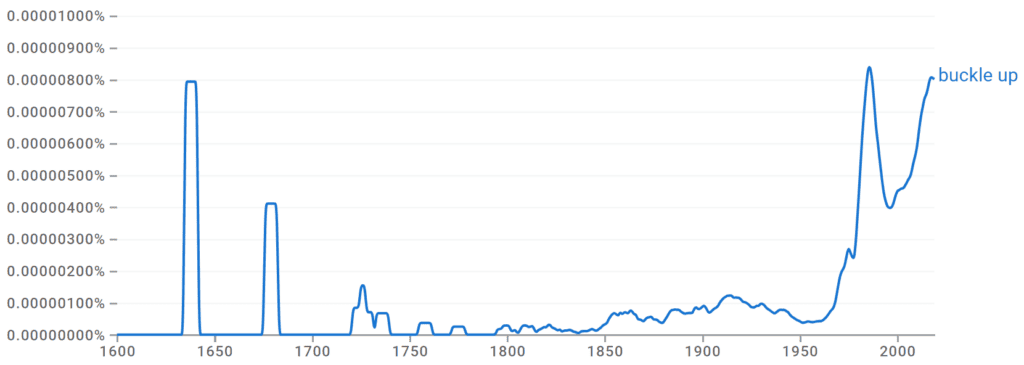Idiomatic phrases often have interesting histories and can occasionally still be used in both literal and figurative modern speech and writing. The expression buckle up is a great example of this, as it likely is hundreds of years old in its use, both literally and figuratively.
Its idiomatic use alludes to its denotative definition but has long been used to interject or exclaim a warning of surprise or danger in reference to an upcoming future event.
Let’s take a look at the interesting history behind the term buckle up and how you can use it in speech and writing.
What Is the Meaning of Buckle Up?
Buckle up originates from a long history of literal buckling of various items. However, it serves as an idiomatic slang expression in a modern context. Today, other than telling someone to buckle up their seatbelt, we use the term figuratively to prepare for what is about to happen.
Buckle up is often used as an interjection or exclamation to infer that an event is about to be exciting, unexpected, dangerous or even troubling. It can serve as a warning as well.
For example:
- Buckle up! This evening will likely be the busiest of the season, and we want to ensure all our guests have the best service possible.
- Before inviting the CEO to the monthly meeting again, at least give us enough warning to buckle up for the conversations that will ensue.
- Alright, everyone, with the winter weather moving in, I need you all to buckle up and ensure all the animals are well bedded down for the night.
Is Buckle Up Hyphenated?
Buckle up is never hyphenated and serves as an idiomatic slang expression or interjection.
Is It Buckle Up or Buck Up?
Buck up and buckle up are two different terms unrelated to one another.
Buck up is an admonition to toughen up or to cheer up. It can be used to demand that someone quit acting cowardly or weakly or encourage someone to look on the bright side of life and not dwell on negative things.
For example:
- Buck up and get yourself together; you have to make an appearance at the opening tonight so people don’t start rumors.
Buck up was first used in the 1840s, which means to cheer up or look sharp, and was generally directed at men, likely due to its ties to the word buck being a male of various ungulate species.
The Origins of Buckle Up
The use of buckle up as a literal term has had various origins through the years. It likely was first used in the 1500s when soldiers buckled on their sword belts in preparation for combat and then later used in relation to the decorative shoe buckles of the 17th and 18th centuries.
It is believed that it took on a figurative use at these times as a way to tell people to prepare or to get ready.
The term once again made a literal appearance in the 20th century with the introduction of seat belts in airplanes and automobiles. It quickly took on a figurative use, with one of the first documentations of a variation of the expression occurring in the 1950 movie “All About Eve” by the character Margo Channing: “Fasten your seat belts, it’s going to be a bumpy night.”
Let’s Review
Buckle up is not to be confused with the expression buck up as they have very different meanings.
Buckle up has had many literal uses through the years, and it was likely used figuratively long before its modern context of a seatbelt buckle and consequent use to mean get ready or be prepared.
From sword belt buckles to shoe buckles and seat belt buckles, the expression has a long and interesting history and use.



